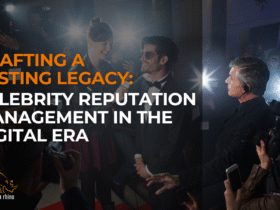These days, having a linear career is becoming less common. Career pivots and changes have not only become more acceptable but in many ways valuable because they can equip you with unique experiences and perspectives that differentiate you from professionals who follow more traditional paths.
When it comes to figuring out where to take your career next, all sorts of tactics exist. From career assessments to informational interviews to personality tests to interest inventories, there’s no shortage of ways to clarify which profession you may find most enjoyable. But that may be part of the reason why figuring out the right career path can be so confusing. Having too many ways of approaching a question can actually be paralyzing.
If you’re looking for one way to clarify which profession could provide you with more fulfillment, consider leveraging the Japanese concept of “ikigai,” related to a person’s reason for being, which can provide a useful framework for identifying where you can thrive in your career.
Ikigai’s Origins and Framework
I’ve always been fascinated with Japan. My mother did her Master’s degree there in the early 1970s, and I visited the country for the first time in 2005. The intersection of modern and traditional, the respectful culture, and the principle of duty and continuous improvement left a major impression on me.
The concept of Ikigai has been around for centuries in Japanese culture. Recent books that popularized the term more broadly include Ikigai: The Japanese Secret to a Long and Happy Life by Héctor García and Francesc Miralles and Ikigai: The Japanese Art of Finding Purpose in Life by Ken Mogi.
While Ikigai traditionally focuses on where to find meaning and purpose in one’s life, the framework is extremely relevant to identifying a rewarding career path. In the context of careers, Ikigai is about understanding your reason for living and can be seen as the convergence of four elements:
- What do you love? Activities and tasks you naturally enjoy that energize you.
- What does the world need? Relevant, unmet needs that need addressing.
- What are you good at? Your unique skills, talents, and strengths.
- What can you get paid for? An offering others are willing and able to pay for.
Answering these questions can help you identify your professional sweet spot.
Example of How I Apply Ikigai to My Career
 So you can see an example of how this can work, here’s how I would answer these questions.
So you can see an example of how this can work, here’s how I would answer these questions.
What do I love?
I love helping people clarify where they want to take their careers. I find this energizing and meaningful. I also like being my own boss and controlling my schedule so I can devote my time and energy toward personal and professional priorities that matter most to me.
What does the world need?
Accomplished professionals need to feel like they have permission to do work that really matters to them and fill their days doing work they find meaningful. They need to feel comfortable and at peace with stepping off the beaten path if that means they can do more energizing work.
What am I good at?
I’m a seasoned public speaker with a background in branding and professional coaching. I’m a critical listener who excels at empowering people by creating structures to help them work through their ideas. I also think of myself as being very committed & trustworthy.
What can I get paid for?
I can get paid to host workshops, give talks, coach clients, and create online content for those eager to start a new chapter in their careers.
Putting It All Together
 After you’ve gone through the exercise of answering each of these questions, look at where these ideas converge. This intersection of passion, mission, vocation, and profession can be one way to shed light on what your career could look like moving forward as you clarify where you may be able to excel and thrive. For me, this ikigai exercise suggests my work should be focused on some sort of service-based career advisory work that’s a combination of speaking, coaching, and content creation.
After you’ve gone through the exercise of answering each of these questions, look at where these ideas converge. This intersection of passion, mission, vocation, and profession can be one way to shed light on what your career could look like moving forward as you clarify where you may be able to excel and thrive. For me, this ikigai exercise suggests my work should be focused on some sort of service-based career advisory work that’s a combination of speaking, coaching, and content creation.
Obviously, these may not be easy questions to answer off the top of your head. Knowing who you are, what you want, and where you want to head is a lifelong journey. However, if you’re looking for another way to clarify your place in the professional world, this Ikigai framework could be a good starting point.
Discover your true career calling by applying the Japanese concept of ikigai, a simple framework to leverage your passions, skills, and purpose.
Did you enjoy reading this?
Get more free career change and useful personal branding resources like this sent straight to your inbox. After registering, you’ll also gain exclusive access to my Career Resource Hub, get the latest episodes of my Career Relaunch® podcast, and hear my perspectives on current career transition topics.















